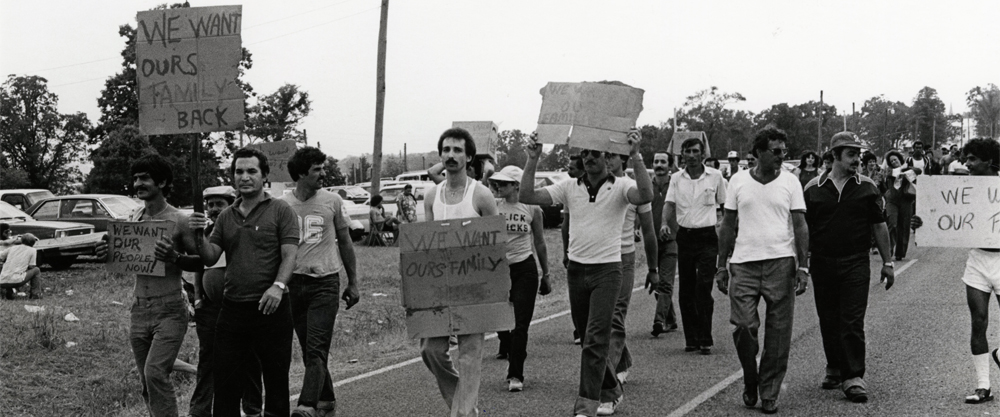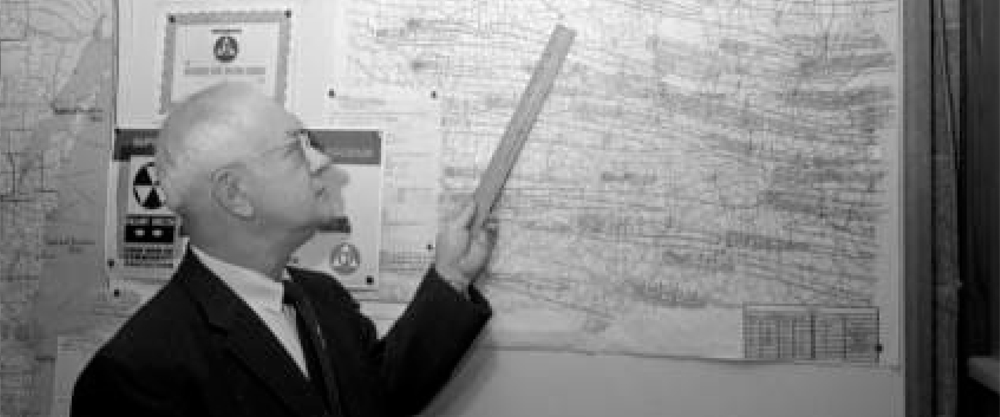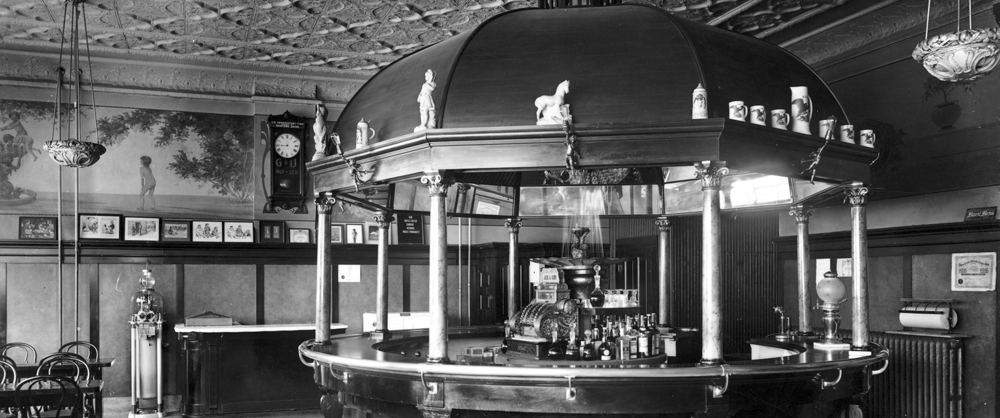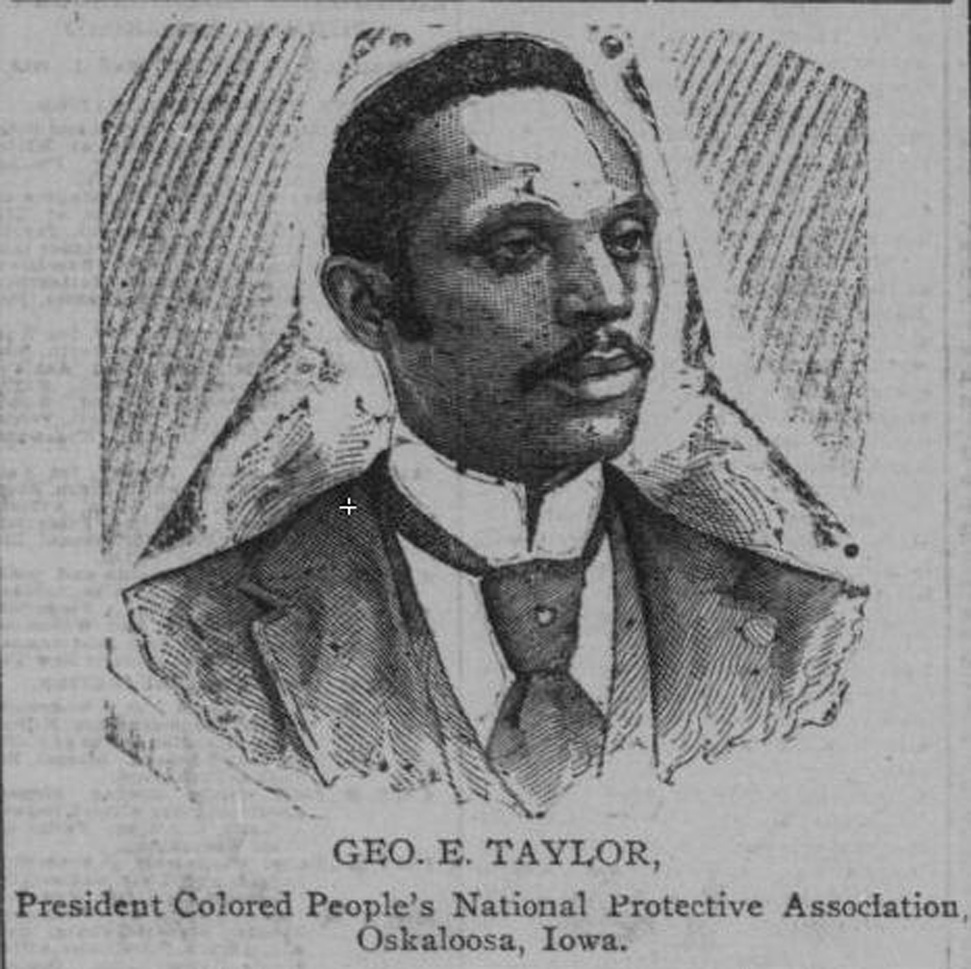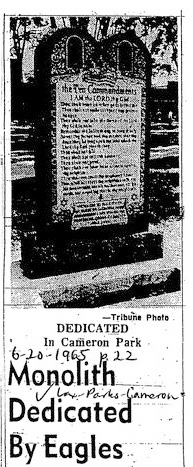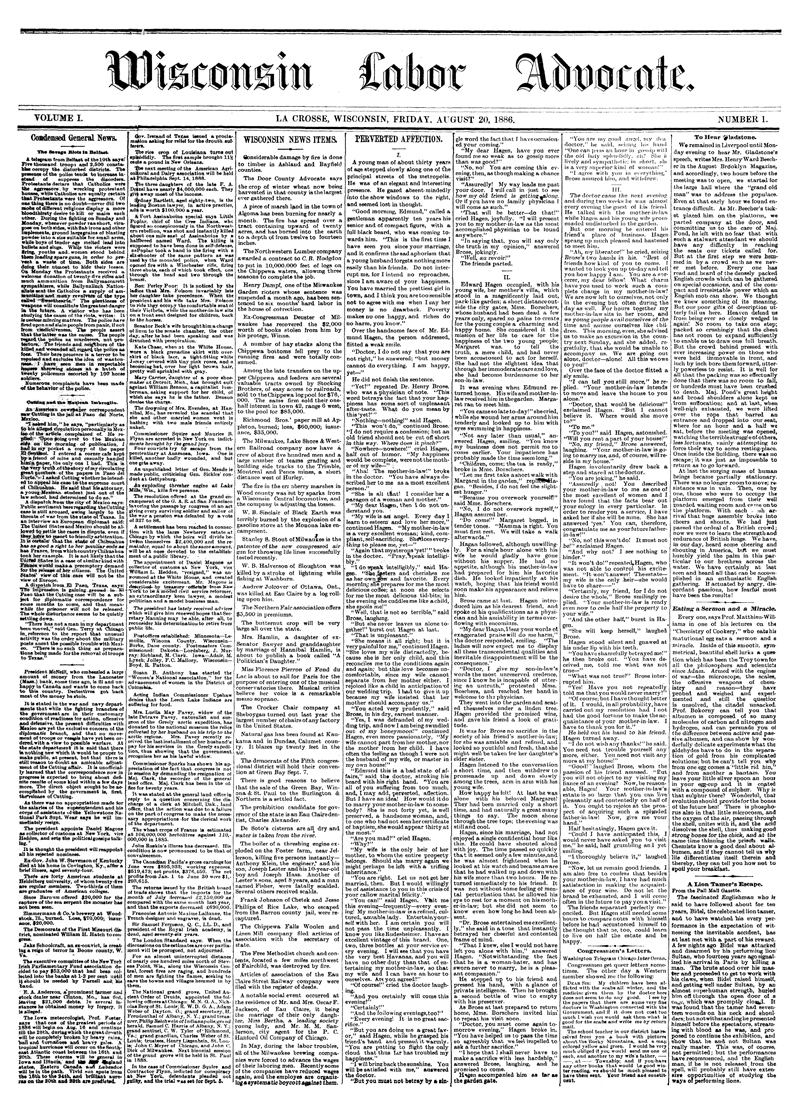Resources
—Politics—
Author:
University of Wisconsin-La Crosse
Creator:
Rigotti, Katelyn
Description:
This paper examines the work and accomplishments of the La Crosse County Women’s Political Caucus, which operated as a local branch of the state and national organization. Their purpose was to encourage women to run for state and local office, and to provide support and information on campaigning. They also worked to educate the public on important issues like the Equal Rights Amendment and Affirmative Action. This paper focuses on their efforts to secure the passage of the Equal Rights Amendment for the federal and state constitution. My research is a study of the Equal Rights Amendment, and the way it would have impacted the condition of women. There was a lot of opposition to the Equal Rights Amendment for various reasons. Some people understood what changes the amendment would make, while others were making assumptions. This research dissects the reasons people opposed it and the way proponents failed to correct these misconceptions surrounding the amendment, resulting in the lack of successful ratification.
Published as part of the University of Wisconsin-La Crosse Journal of Undergraduate Research, Volume 21 (2018)
Published as part of the University of Wisconsin-La Crosse Journal of Undergraduate Research, Volume 21 (2018)
Creator:
McQuin, James M.
Description:
The year 1904 produced a political battle in the Wisconsin Republican party that would affect the state's future for nearly a decade thereafter. The Republican party in Wisconsin was split into two factions in the late 1890's. Former Congressman Robert M. LaFollette's faction, the "insurgents" or "half-breeds" was opposed by the dominant Republican faction known as the "stalwarts." The 1904 gubernatorial campaign in the state of Wisconsin produced emotional factionalism in the state Republican party which spread into every community. The purpose of this study is to examine the editorial opinion expressed in three La Crosse, Wisconsin newspapers during the gubernatorial campaign of 1904 and, in so doing, to determine the position taken by each paper concerning the state Republican party strife and the key issues of the campaign. The three newspapers are the La Crosse Chronicle, the La Crosse Leader-Press and the La Crosse Tribune. A short overview of the 1904 campaign and election is followed by an examination of the editorial content of the three newspapers during the period from January 14, 1904 to November 9, 1904. The examination revealed several tendencies. First, the Leader-Press maintained a neutral stand on the gubernatorial campaign, but endorsed the primary election law referendum. Second, the Chronicle supported the stalwart candidates and denounced the primary election law referendum. Third, the Tribune initially maintained an independent political opinion but eventually abandoned that position and supported the Democratic Party and it's candidates. The Tribune argued that the primary election law referendum was not a political issue in the campaign.
UW-L Seminar Paper
UW-L Seminar Paper
Author:
Wisconsin State University (La Crosse)
Creator:
Birch, Charles W.
Description:
UW – La Crosse Seminar Paper
Description:
Taylor was born in Little Rock, Arkansas, in August 1857, to Amanda Hines, a free black woman. Taylor later reported that his father was Nathan Taylor, a slave. Hines was forced to leave Arkansas in 1859 as a consequence of a new law which required all free blacks to leave the state by 1 January 1860 or be sold as slaves. Hines died in Alton, Illinois, in 1861 or 1862, and young George was forced to live in “dry goods boxes†and fend for himself.
In 1865 when he arrived in La Crosse, Wisconsin, onboard the “Hawkeye State,†a side-paddle vessel then operating on the upper Mississippi River. Taylor lived in La Crosse only one or two years, after which he was “bound out†to Nathan Smith of rural West Salem where he lived until he reached the age of 20 years. He attended Wayland University in Beaver Dam from 1877 to 1879, after which he settled in La Crosse and in the employ of Marcus “Brick†Pomeroy, editor of Pomeroy’s Democrat. From 1880 to 1885, Taylor wrote for several local papers and contributed articles to the Chicago Inter Ocean. In 1885, he was the editor of a newspaper supported financially by Frank “White Beaver†Powell, and eventually became an important player in Powell’s first two terms as mayor of La Crosse.
Lastly, In 1886 and 1887, Taylor became a crucial figure and office holder in Wisconsin’s People’s Party and then its Union Labor Party. His Wisconsin Labor Advocate was the voice of Wisconsin’s labor party in 1886-1887. From 1891 to 1910, Taylor lived in Oskaloosa and Ottumwa, Iowa, where he published a national magazine called the Negro Solicitor. During this period he rose to prominence in national black politics, acting as president of the National Colored Men’s Protective Association and the National Negro Democratic League and served high office in various other black organizations. In 1904, Taylor was selected to lead the ticket of the National Negro Liberty Party for the office of president of the United States. From 1910 to 1925, Taylor retreated from the national stage and lived an active life in Jacksonville, Florida.
Library guide created by UWL, Murphy Library that contains links to primary as well as secondary sources
Library guide created by UWL, Murphy Library that contains links to primary as well as secondary sources
Author:
La Crosse Public Library
Creator:
La Crosse Tribune
Description:
Newspaper articles related to the controversy of a ten commandments monument located in a public park in La Crosse, Wisconsin. The Ten Commandments Monument was donated to the city and dedicated in Cameron Park in conjunction with a state Eagles Club convention held in La Crosse in 1965. Seen as a religious symbol on public property, a lawsuit in 1985 sparked a court battle between the Freedom From Religion Foundation, led by Anne Gaylor, and the city. The case was dismissed in 1988. The issue resurfaced in 2001 with more local citizen support, and the city sold the small parcel of land where the monument stands to the Eagles Club in 2002.
Creator:
Lee, Gordon H.
Description:
The First World War brought about drastic changes in the United States militarily, politically, and socially. The upheaval brought about by that period gave rise to the Ku Klux Klan throughout the country. The Klan considered itself a reform movement promoting 100 per cent Americanism, separation of church and state, Protestant fundamentalism, White supremacy, anti-Catholicism, and anti-Semitism. The Klan was brought to Wisconsin in 1920 and after a rather slow start, it enjoyed some success in the years 1923, 1924, and 1925. Because of poor leadership, a shortage of issues, and a growing resentment against hate speakers, the organization failed. By 1925 the Klan was having membership problems and by 1928 it was almost nonexistent.
UW-L Seminar Paper
UW-L Seminar Paper
Author:
Northern Illinois University
Creator:
Ruth A. Tucker
Description:
A PhD dissertation completed in 1979 by Ruth Anne Tucker about Marcus M. "Brick" Pomeroy, noted newspaper publisher, writer, editor, and political activist.
Photocopy of typescript. Ann Arbor : University Microfilms, 1981. -- iv, 374 leaves ; 21 cm.; Thesis (Ph.D.)--Northern Illinois University, 1979.; Bibliography: leaves [356]-374.
Photocopy of typescript. Ann Arbor : University Microfilms, 1981. -- iv, 374 leaves ; 21 cm.; Thesis (Ph.D.)--Northern Illinois University, 1979.; Bibliography: leaves [356]-374.
Creator:
Harry Frederick Bangsberg 1928-1967
Description:
Marcus Mills Pomeroy or "Brick" Pomeroy is the subject of this thesis. He was the editor of the La Crosse Democrat newspaper who sided with Democrat extremists against Abraham Lincoln curing the Civil War.
"A paper submitted in partial fulfillment of the requirements for Course 16:273 in the Department of History in the Graduate College of the State University of Iowa."
"A paper submitted in partial fulfillment of the requirements for Course 16:273 in the Department of History in the Graduate College of the State University of Iowa."
Author:
publisher not identified
Description:
a booklet created for campaign purposes giving a glimpse into Milo Knutson's work and political life that includes La Crosse business advertising; Knutson served as news director for WKTY radio and was mayor of La Crosse from 1955-1965 after which he turned his attention to the Wisconsin State Senate, serving there as a Republican from 1969-1977
Creator:
Anderson, James L.
Description:
Milo Knutson came to LaCrosse in 1917 and established himself as a news broadcaster. Prior to his arrival he had never held either an elective or appointed public position. Yet, he eventually sought and won the mayoralty of LaCrosse, an office he maintained from 1955 to 1965. His rise in local popularity can be attributed to several personal and community factors. Knutson's dynamic personality, oratorical skills, and political opportunism were his most important public assets. The James Christie Case, the Evelyn Hartley Case, conflict among some community leaders, and the conservative temper of LaCrosse Citizens provided a receptive social and political climate for an ambitious person, such as Milo Knutson, who held conservative views. As a candidate in the 1955 election, Milo Knutson accused community leaders of incompetence. Subsequently, he made political pledges to correct what he considered to be existing abuses within the city. Apparently anticipating reforms, the majority of the community supported Knutson. But the new mayor found himself in the same political situation, that, as a candidate, he had accused his predecesors of occupying. Knutson failed to fulfill his political pledges to reform the police department and to reconstruct city government. Once in office, he exhibited the same weaknesses he had denounced in his predecessors. The issue of public education became an effective "tool" which Knutson manipulated for his popular and political gain. Throughout his administration, his critics charged that public education regressed because of insufficient money, too few teachers, and inadequate school facilities. The author concludes that Milo Knutson, seeking a public career, took advantage of a timely series of events to win election as mayor of LaCrosse. His administration was, however, a general failure in terms of his ability to fulfill important campaign promises and in terms of his support for important institutions within the community.
UW-L Seminar Paper
UW-L Seminar Paper
Author:
University of Wisconsin-La Crosse Oral History Program
Description:
Paul G. Pappas discusses growing up as one of five sons born to Greek immigrants who settled in La Crosse, Wisconsin. Topics include but are not limited to: the downtown business environment, the Elite, family background, Imperial Ice Cream Shop, childhood, Greek Food, church, religion, dating, sports and recreation, WWII, transportation, YMCA, Valley View Mall, 20th century technology changes (refrigerator, television), atomic bomb, Korean Conflict, McCarthyism, voting, local politics, Vietnam War, Civil Rights Movement, and marriage.
Author:
University of Wisconsin-La Crosse Oral History Program
Description:
Raymond Bice discusses his childhood and early life, talking of fishing, hanging out at rail yards, his school delinquency, some of his teachers and his principal, as well as his story of eventually dropping out of high school. He also talks about his adult life, including his political career and the greater political climate of La Crosse, specifically at the County level. Bice talks in detail about the Trapper's bill and law, the Speed Limit bill and law, the Highway Safety bill and law, Liquor tax, and lobbying groups. He also discusses general topics like the Great Depression, Prohibition and bootlegging, neighborhood rivalry, and Syrian immigration to La Crosse.
Tape 2
Tape 2
Author:
University of Wisconsin-La Crosse Oral History Program
Description:
Oswalt discusses her involvement with the La Crosse Business and Professional Women's Club and efforts to achieve wage equality and health care reform and to improve the status of women in the workplace and society.
Author:
University of Wisconsin-La Crosse Oral History Program
Description:
Terrance Collins (b. 1947) interview largely focuses on his family, early childhood in La Crosse's North Side neighborhood, his local education (Aquinas, Central, and UWL), and his career as a lawyer. Topics include but are not limited to: North Side neighborhood, Heritage Preservation Commission, Stoddard Hotel, North Side Depot, Catholicism, military service (Air Force), UW-La Crosse, professors, Vietnam War, protests, counter culture, drugs, Wisconsin and La Crosse politics, law firm (Cillins, Quillin, and Knofe)
00:00:00 -- Education, political science
Tape 2
Tape 2
Creator:
Schlicht, Clarence L.
Description:
Dr. Frank Powell, a colorful personality and a well known physician and surgeon, rose to political prominence on the basis of his popularity with the common man. White Beaver, as he chose to be callad, was important in the Populist movement in Wisconsin, but it was as the mayor of La Crosse that he left his mark on Wisconsin's political history. Four times White Beaver won the highest elective office of the city, one-year terms in 1885 and 1886, and two-year terms in 1893 and 1895. Each administration acomplished something worthwhile in the progress of La Crosse, but each succeeding administration was also characterized by conflict and controversy. The sources used include historical records, books, council proceedings and newspapers. No attempt was made to produce an exhaustive study of Dr. Powell. Rather a survey of one of the outstanding political careers in La Crosse's history has been undertaken here.
UW-L Seminar Paper
UW-L Seminar Paper
Author:
Geo. E. Taylor & Co.
Creator:
Taylor, George E.
Description:
This collection includes the newspaper and its transcriptions. The Wisconsin Labor Advocate was a newspaper published in La Crosse in 1886-1887 with political and financial backing from Dr. D. Frank "White Beaver" Powell. La Crosse was a hotbed of Labor political party activity in the 1880s and the Wisconsin Labor Advocate was one of at least four La Crosse area Labor-related newspapers from that time. What makes the Wisconsin Labor Advocate unique was its editor and owner: George Edwin Taylor. Taylor was an African-American, born in Arkansas in 1857. As a black business owner, he was an anomaly in La Crosse, Wisconsin, in the 1880s. Taylor got his start in publishing working at other La Crosse newspapers. He also became increasingly interested in politics as reflected in his editorship of the Wisconsin Labor Advocate. The last existing edition of the paper dates from August 6, 1887 and George Edwin Taylor left La Crosse soon afterwards. He maintained a life-long interest in politics and by 1904 had become involved in an all African-American political party called the National Liberty Party. Taylor accepted the nomination of that party in 1904 as its candidate for the office of the U.S. President. In doing so, Taylor was the first candidate of a national African-American party for the U.S. presidency.
